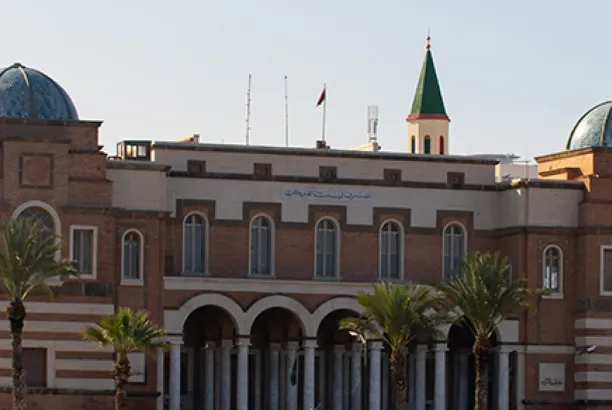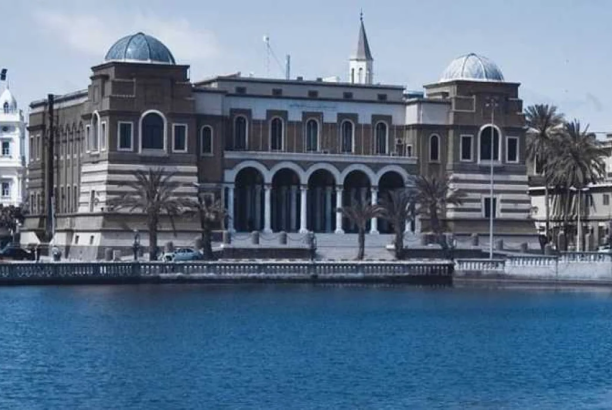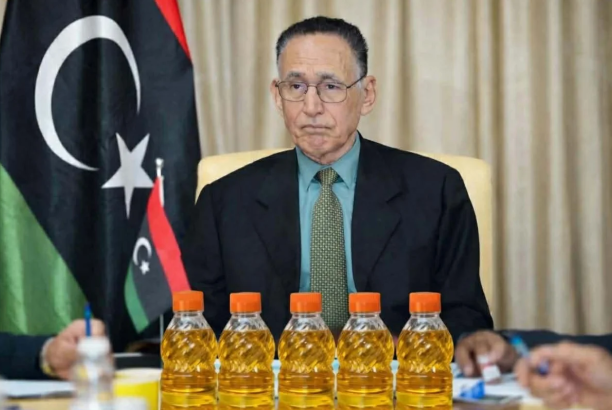
| News
Smuggling of Oil, Gold, and Control Over State Institutions: A Report by UN Security Council Experts
A report by the UN Security Council’s expert panel revealed that pressure was applied on the Audit Bureau, forcing it to approve a contract worth over $200 million for the importation of electricity meters for the General Electricity Company under the management of Al-Mishai. The contract was subcontracted to North Africa Holding for Development and Investment, which, however, barely fulfilled its obligations under this subcontract.
The report also highlighted the influence of armed groups on Libya’s public institutions, including the National Oil Corporation. Armed group affiliates were appointed to leadership positions within the corporation, and the organizational structure was altered to limit internal checks and balances. A new strategic office was created outside the corporation to manage service agreements with private companies, including one with Arknu Oil, the first private oil company in Libya. Under these agreements, Arknu exported six million barrels of crude oil at an average price of $77 per barrel, amounting to $463 million. The report found that Arknu is controlled by Sadam Hafter.
The report further reveals that armed groups now have significant influence over oil revenues and the fuel supply chain, and they control various entities in both the public and private sectors. It mentions the use of a private company to market and sell crude oil outside the traditional oversight of the NOC and the Central Bank of Libya. Additionally, there is evidence of the General Electricity Company buying surplus fuel for illegal exportation, and activities related to smuggling from the Old Benghazi Port, which have enabled armed groups to generate unprecedented revenue from fuel smuggling due to favorable conditions both nationally and internationally.
The report also noted that, in the past two years, fuel smuggling from Libya reached unprecedented levels. Most of the smuggled fuel, particularly diesel, was sold on the black market or through forged documents. Armed groups controlled the fuel smuggling trade, generating steady income from it. The Libyan Arab Armed Forces also gained indirect access to public funds through fuel smuggling from the Old Benghazi Port. Armed groups in Tripoli and Zawiya directly controlled key economic sectors and government institutions related to smuggling a large portion of diesel meant for domestic consumption.
The report mentions a sudden increase in fuel demand by the General Electricity Company, despite the fact that the company doesn’t typically require large amounts of diesel for its operations. Its energy production primarily relies on gas-powered stations, with oil and refined products, like heavy fuel oil and diesel, being used as reserves. Over the course of 2022 to 2023, the company’s budget for petroleum purchases increased by $5 billion, from $3.7 billion in 2022 to $8.7 billion in 2023. This increase was allocated for diesel ($3.5 billion) and natural gas ($4.1 billion), accounting for more than 87% of the company’s total budget for petroleum products in 2023. Despite this additional allocation, electricity production did not rise proportionally. Given that Libyan power plants are capable of dual-fuel use, the amount allocated for purchasing natural gas alone should have been sufficient to meet electricity production needs. According to the National Oil Corporation, the average value of imported diesel in 2023 was $903.58 per ton. This indicates that the company received fuel worth only $2.6 billion, creating a potential gap of $900 million in its budget expenditure. Moreover, the company lacked the necessary storage capacity to manage the fuel it received in 2023, and in 2024, it requested Brega Company to reroute several ships carrying diesel to Western power plants, even though the Benghazi power station does not use diesel as fuel. This situation creates a high risk of large quantities of diesel being diverted.
The report also highlighted the expansion of smuggling activities previously reported from the Old Benghazi Port, with 137 visits by smuggling vessels. Forty-eight ships made over 185 visits to Benghazi, with some ships making as many as 15 visits. The average vessel size increased from 5,700 tons to 9,970 tons of deadweight. Smuggling and disruption patterns have evolved, with ship-to-ship transfers occurring in international waters, mainly in the Herd Bank off Malta. Some ships returned to Benghazi for refueling multiple times during these periods. The total amount of diesel smuggled was estimated at approximately 1.125 million tons, with the actual amount likely being higher.
Additionally, the report revealed a network of 12 other ships, with one individual identified as holding both Greek and other nationalities.





